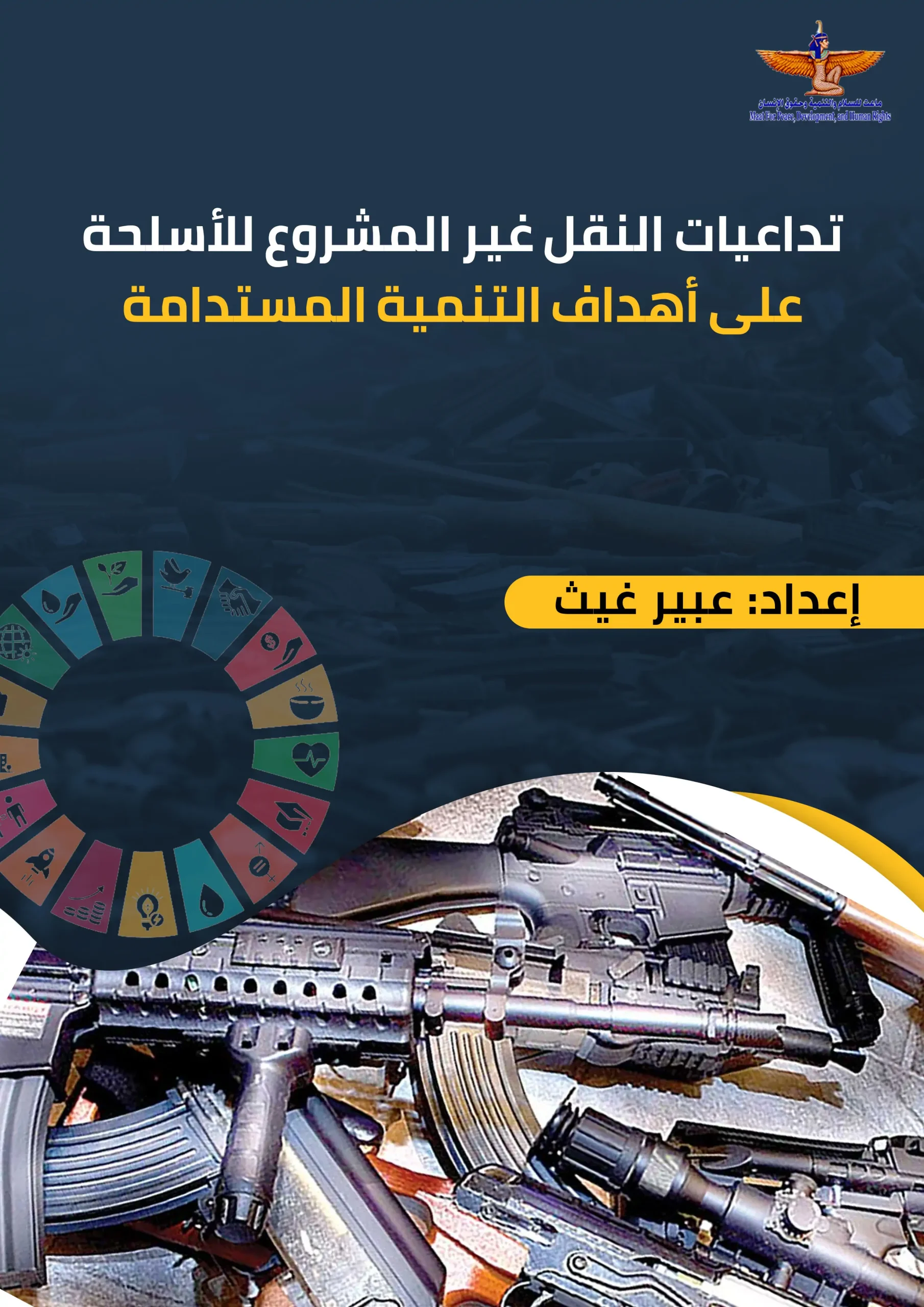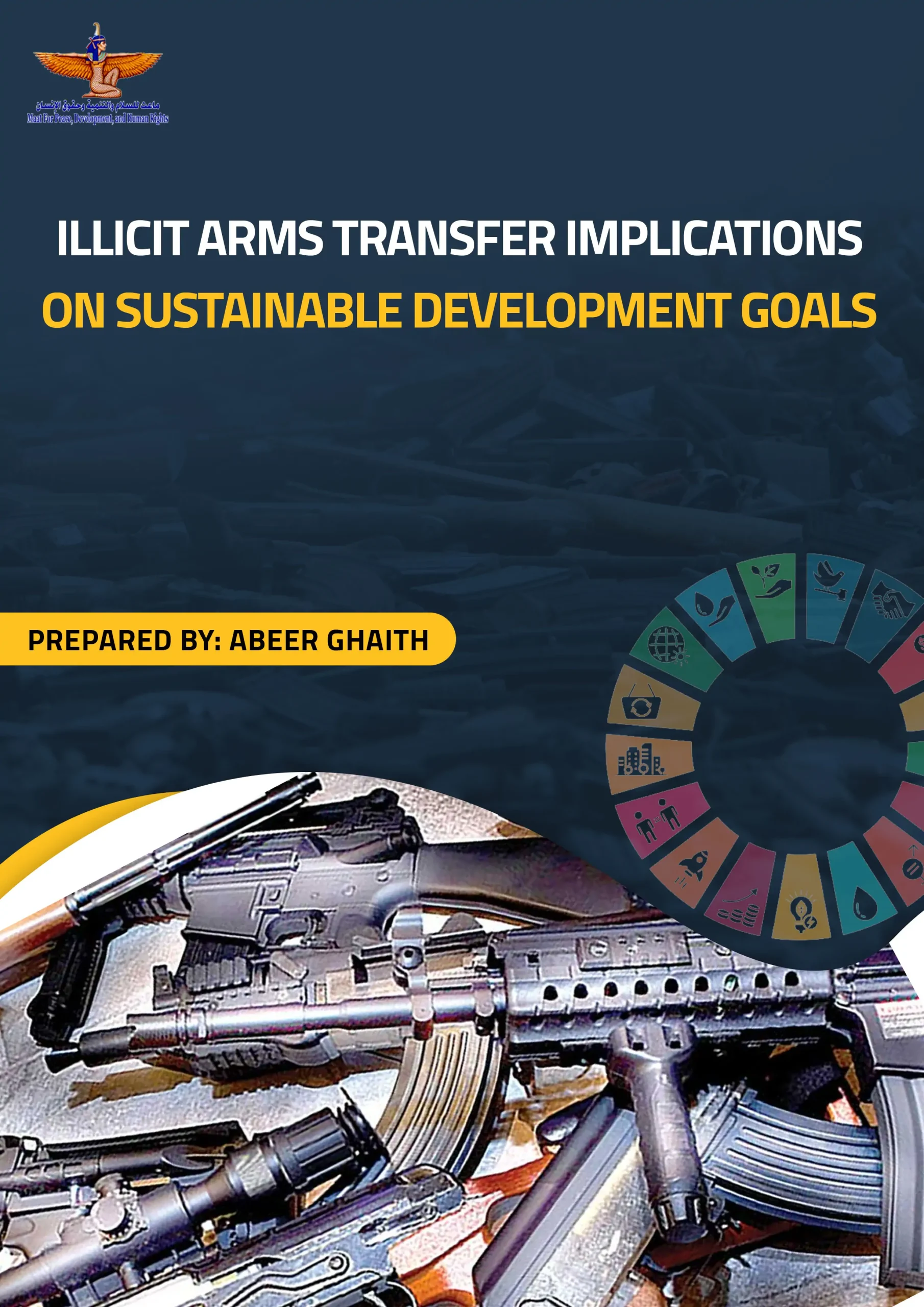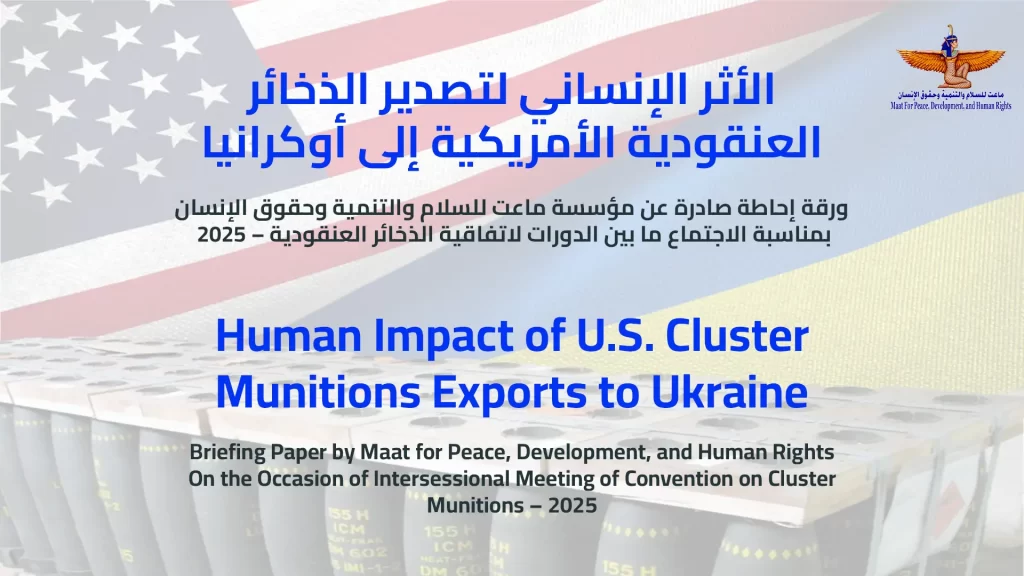Introduction:
The intersection between smuggling and illicit transfer of weapons and achieving the Sustainable Development Goals is evident, particularly in SDG 16, which aims to reduce illicit flows of money and weapons, promote the recovery and return of stolen assets, and combat organized crime by 2030. The establishment of peaceful societies where no one is marginalized is the ultimate objective. Sustainable development is a term coined by the United Nations that encompasses environmental, social, and economic development on a global scale. Its primary focus is to improve the living conditions of individuals, develop sustainable methods of production, and manage resources in a manner that does not deplete the Earth's natural resources, thus ensuring the well-being of future generations. Additionally, it aims to meet the needs of the present generation without compromising the rights of future generations or overexploiting the planet's resources.
Sustainable Development Goals serve as a global call to action to eradicate poverty, preserve the environment, and enhance living conditions worldwide. These 17 goals were adopted by all UN Member States in 2015 as part of the 2030 Agenda for Sustainable Development, which outlines a 15-year plan to achieve these objectives.
Consequently, the United Nations, along with numerous regional organizations, specialized international agencies, and non-governmental organizations, have mobilized efforts to implement the sustainable development goals and foster a global humanitarian community capable of addressing global challenges, eliminating poverty, transforming unsustainable patterns of production and consumption, and safeguarding natural resources. The aim is to prevent global environmental degradation, biodiversity loss, desertification, and tackle water, air, and marine pollution, all with the goal of establishing secure and peaceful societies.
However, illicit trade in small arms and light weapons exacerbates conflicts, worsens humanitarian situations, and hinders development. Security Council has emphasized the importance of political will and effective arms management in addressing and diverting the trafficking of arms and ammunition to conflict areas. The diversion and trafficking of weapons and ammunition are critical factors that undermine peace and security. The misuse of illicit weapons and ammunition has far-reaching consequences, including loss of life, injuries, displacement, psychological trauma, and long-term social and economic impacts, such as limited access to healthcare, education, and humanitarian services, as well as hindrances to the protection of civilians and sustainable development. Consequently, it is crucial to address all stages of the weapons life cycle, including production, export, and storage.
Illicit trade in small arms and light weapons, along with their diversion and re-diversion to unauthorized end-users, contributes to high levels of armed violence, crime, and terrorism. Therefore, it is in the interest of all countries to take comprehensive measures to tackle this issue. Furthermore, all Member States acknowledge that illicit arms trade has implications for achieving multiple sustainable development goals, including those related to peace, justice, poverty reduction, education, and creating safe societies. As part of its campaign #Let's_Keep_Weapons_Safe, Maat for Peace, Development, and Human Rights presents this study, which will specifically focus on the impact of legitimate weapons transfers on undermining a specific set of sustainable development goals, with a particular emphasis on SDG 16 and the relationship between illicit arms transfers and sustainable development.
 |
 |

shortlink: https://maatpeace.org/en/?p=40612












